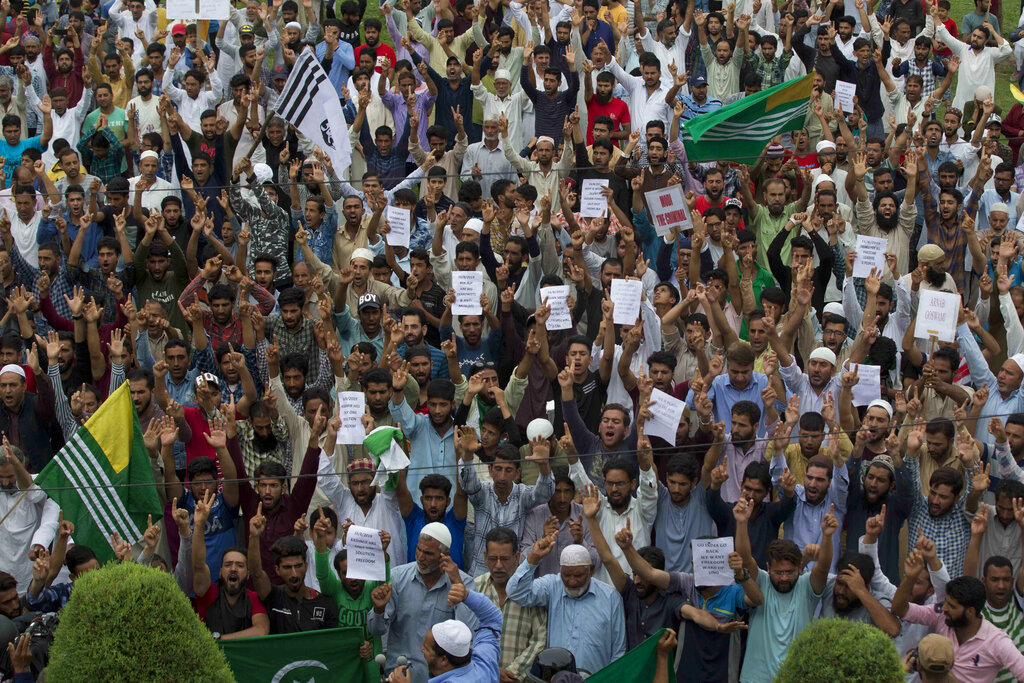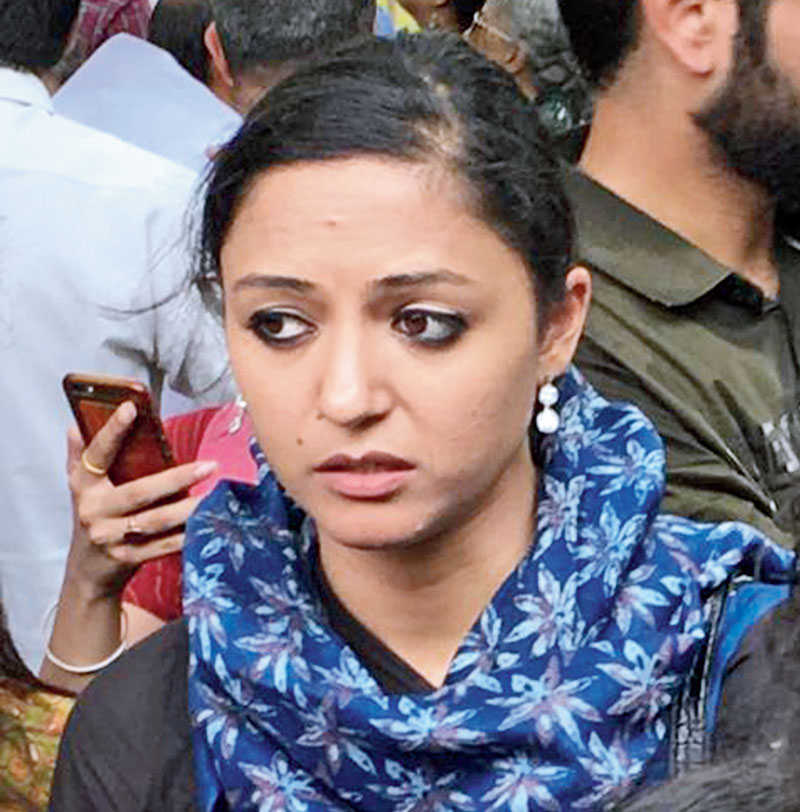Stone-pelting long has been a way of protesting in Kashmir but not in the uncontrollable fashion it which it erupted following the killing of Burhan Wani in July 2016. Northern Army Commander General D. S. Hooda conceded the army was helpless when whole villages came out in support of the militants.
But Operation ‘All Out’ and the muscular policy that followed could at best only limit the situation while casualties both among civilians and security forces kept growing. Also, as well, there was the growth of home-grown militants as exemplified by the one of who blew up the bus carrying CRPF personnel in Pulwama.
Insurgencies are rarely solved by force. Conflicts can really only be brought to an end by winning the hearts and minds of the people.
And hence we may have even a bigger problem than existed in that troubled region two weeks ago. The revocation of special status for Kashmir, which took by surprise the vast majority of Kashmiris including the all-party leaders who met on August 4, may have changed the situation irrevocably. Another disturbing reality is that those who should have been the best informed had no idea of what was going to occur. What this will lead to only time will tell.
There are contradictory reports emerging from the Valley which has been shut down for the last 17 days. Censorship inevitably fuels the rumour mill. A prominent and respected businessman said while the rest of the country may have applauded the Centre’s action, for Kashmiris, it was demeaning to be reduced to a Union Territory after enjoying “special” status. As Article 370 had already been hollowed out, what was the need to split the state? And now, how can we come up with a plan that restores a sense of dignity to Kashmiris? Kashmiris, as would many other people in the same set of circumstances, can only be expected to deeply resent this action. Those who were fighting for autonomy can now be expected to fight for independent statehood.
Reality will begin to dawn once restrictions are lifted and daily life resumes. Inevitably, there will be a reaction, even possibly an ‘intifada’. Stone-pelters, whose numbers have grown over the years, are enough to disrupt normalcy. Communalism and polarisation have also both grown since the Amarnath land agitation in 2008.
And what should be noted is that whenever terrorism takes on a new shape, it tends to grow outwards. And home-grown terrorists are the most difficult to identify. Pakistan, thankfully, has nothing so far to offer except the odd invitation by the ISI to selected Kashmiris to visit Dubai. The restricted communications have also made it difficult for the ISI to reach out to its friends. More importantly, Kashmiris have totally lost faith in Pakistan.
Still, we know that the killing of Osama Bin Laden in 2011 did not end terrorism. And now, with the US negotiating with the Taliban to withdraw its troops from Afghanistan, India must be specially on its guard. Last month, the former Egyptian surgeon, Ayman al-Zawahiri, who’s likely hiding in Pakistan and is now heading Al Qaeda, called for a terror blitz against India. Referring to the Pakistan Army and government as toadies of the US and the CIA, he called on insurgents in Kashmir to rain “unrelenting blows’ against India. The greatest danger in these circumstances comes from lone wolves.
No amount of force will resolve our problems. Over-reliance on paramilitary forces, no matter what their counter-terrorism expertise would also be counterproductive. The battle on the security front will be lost or won by the J&K police who alone can get into the hearts and minds and find out the secrets of Kashmiris.
This may also be the ideal time to reach out to younger-generation Kashmiris who like to be in government service or in politics. Mainstream politicians must be part of any reconciliation process. They alone can get together all parties as they did on the eve of the shutdown. While an Aam Aadmi-style party might be a good option, the National Conference is still the only party with a reach all over the state. It’s important to engage with the mainstream and possibly now also the best time to talk to Pakistan.
A.S. Dulat is a former chief of the Research & Analysis Wing. He was also a Special Director of the Intelligence Bureau and Advisor on Kashmir Affairs in Prime Minister Vajpayee’s office.












